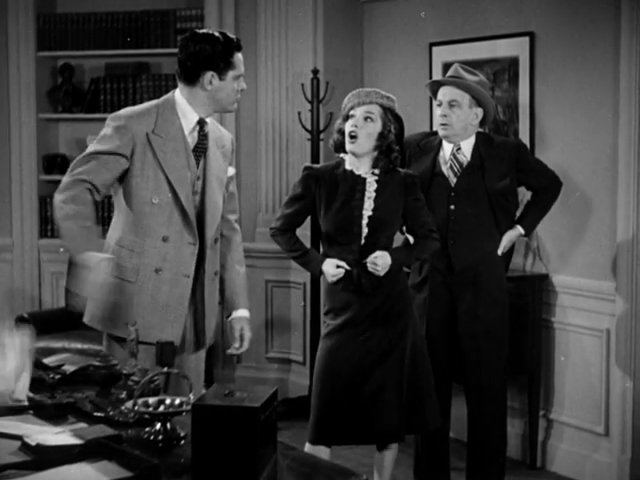Lupe Velez
comedy pioneer
If you don't know of her...you should. Because, most of what
came after her, was because of her.
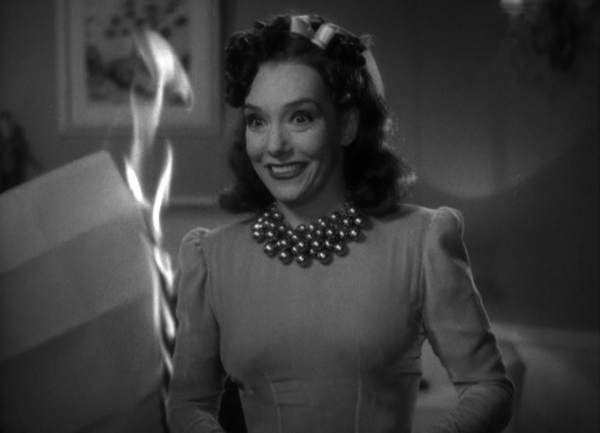
Something special.
Some of the greatest
comedic performers were great because they had something
specific that others
did not. An air of danger. They carried with them a vibe that they were a danger
to themselves and everyone around them. You could just feel that
they were dangerous in a vague unspecific way. John Belushi is a
great example.
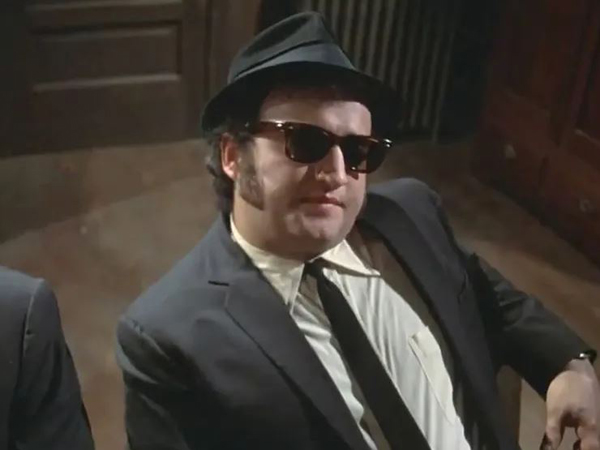
This character was funny and charming and
yet...somehow...without even having seen him do anything...you
got the sense that it would be best not to screw with him. And
that maybe, whatever he was up to, might be best to avoid being
a part of. One need not even seem malicious in being dangerous,
just like...you're not really safe when they are around.
That element is why so much of what he did was so funny. Most of
the set up, the tension of a joke, was just brought on screen
with him, without any foreshadowing needed.
Belushi was a legend most people remember.
It's pretty amazing how many legends there are...that the world
seems to forget are legends. Time and culture keeps plowing
forward into "new" things, i.e. things that aren't really that
new, but seem new because people forget or never learn of what
came previous.
There was a time, when there was no tv, no radio, no movies.
There where theatrical plays and Vaudeville and whatever fill in
performances went on in Circuses. That's was what entertainment
was for the masses. Then came movies with no sound, then came
radio drama's/comedies and then finally movies with sound.
You can have a new medium (movies) but you still need something
to put into that medium and that has to come from somewhere. The
biggest jump in human entertainment history went on when stage
performers had to tune themselves to entertaining an audience
who they will never actually see, movie goers.
That is a hell of a jump when you think about it... A type of
play or performance went over great in Chicago and Kansas City,
but that does not mean anyone will like it in Phoenix or London
or Berlin. If the crowd is in front of you, you can adjust your
performance...speed it up, go bigger, go smaller, get a feel for
the crowd and adjust to what they like, during the show. Now,
with a movie, the performance goes on once and that one
performance has to be entertaining for someone in Chicago and
London and everywhere else.
They never had to do that before.
When you watch old movies, you are actually watching a medium
being created. If you keep that in mind, you can see why many of
the early films seemed either flat or sterile, or the
performances were over the top or silly. They didn't quite know
what they were doing yet, or how they should be doing it. The
element of having no crowd to get feedback from during the
performance...that is an even more tedious tightrope when you
are dealing with comedy
That's why much of early film comedy was physical, slapstick,
pratfalls...jokes that don't rely on the audience picking up
subtly or needing them to pay particular attention to specific
facial expressions or whispers, or catching an off handed
comment. Comedy rooted in personalities interacting wasn't
thought of or attempted at first, not really. Charlie Chaplin
and Harold Lloyd were mostly human props in big physical comedy
stories.
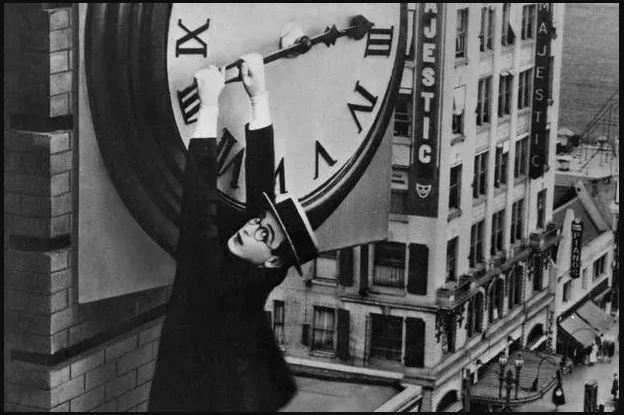
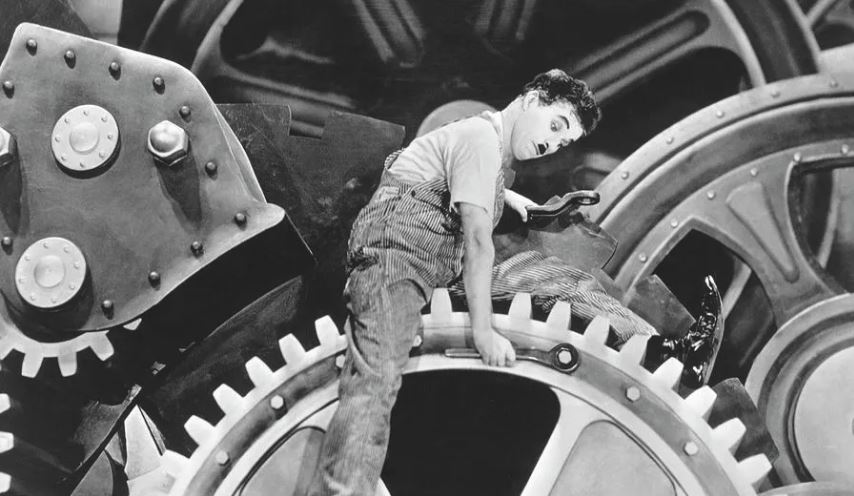
A lot of the physical comedy and sight gags of vaudeville
transferred over well, except for one problem...a movie is long.
An hour of pratfalls is not going to cut it. You long formate material. Comedy struggled at this aspect more than
other genres. Drama, Romance, had plenty of stories to work
with. No shortage of plays or novels to adapt to movie dramas.
Easy enough to fill it out time with a dance number here and
there, for the romances.
But Comedy...that did not have a history of long format type
material. Comedy routines would go onstage for 10 maybe 15
minutes...intertwined with other acts. They had jokes, they had
props, they had stunts...but they didn't really have stories and
so they didn't really have...characters.
They didn't have characters that were 3 dimensional, anyway.
Charlie Chaplin was a cartoon character at best. What passed for
a character in stage comedy was basically a costume, or a
gimmick. If there was a specific personality, it was very over
the top and cartoonish, and not so much something that you could
revolve an hour long story around.
Comedy did great on radio, because they only had to fill 20-30
minutes. Comedy could fill that time with a half assed story and
some funny voices, until it learned and grew into better
versions of itself.
But an hour long movie needs a character people are more than
just entertained by, enjoy watching...they need a character
people care about. And if a character that people care about is
the core...then the comedy has to stem from that. They needed to
create...personality driven humor.
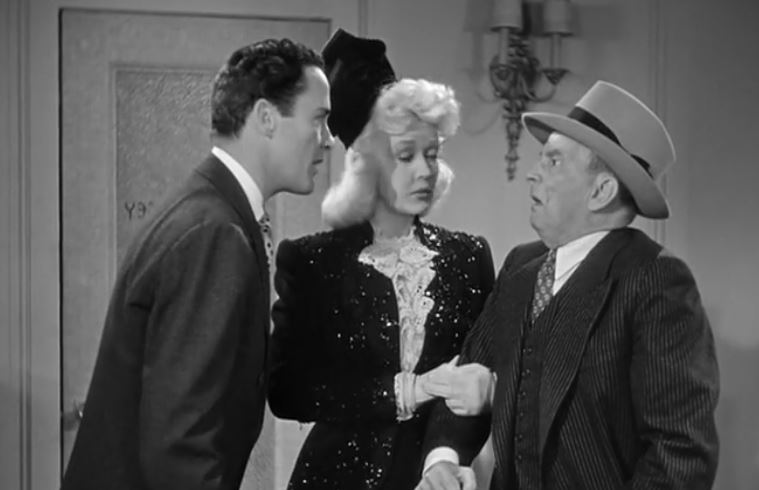
Comedy stemming from personalities conflicting or teaming for an
absurd purpose, jokes based on subtle facial expressions,
multiple reactions at once...that had no building blocks yet.
There had been no need for it, and frankly no way to do it.
An audience at a play can't very well see a close up, or hear
someone muttering under their breath. This is the first time an
audience could be made to focus on one person alone and then
focus the other person, during a single conversation. If you
have six people on a stage, good luck having the audience notice
a smug look on one of them without shining a spotlight right on
the actor, and breaking the entire rhythm of the scene. In a
movie however, they could just simply take a close up camera
shot.
Laurel and Hardy, made the jump well. they had a bit more
dimension to them than most early comedians and made use of new
tools such as close ups, Still though, they relied more on sight
gags than anything and most of their film work was short 10-20
minute films. And...their charm and depth was, honestly (as much
as I like them) pretty thin. There was Jimmy Durante, but he was
an example of "closer but not quite", he was doing what most
vauldevillians were doing, forcing vauldevillian schtick into a
movie script. And that's exactly what it felt like you were
watching.
They weren't really characters you cared for, worried about,
cheered for. They never really felt like they existed for any
reason other than to be vehicles for jokes.
They were closer to what comedy needed, but they just
didn't...just weren't...enough. Comedy needed something a little
more. Comedy needed characters that were every bit as compelling
to watch as the dramas had. Not as heavy as a Humphrey
Bogart or Spencer Tracy, but not as 2 dimensional as Charlie
Chaplin or Mantan Moreland.
It needed a character who did not feel inevitably tethered to
some comedic downfall. A character that did not seem to
exist only to be an ingredient in a joke. A character that had
as equal a chance of being in command of the absurd as being
entrapped by it. It needed a character people could root for and
not know what was going to happen.
It got it, from an unlikely source...
Lupe Velez
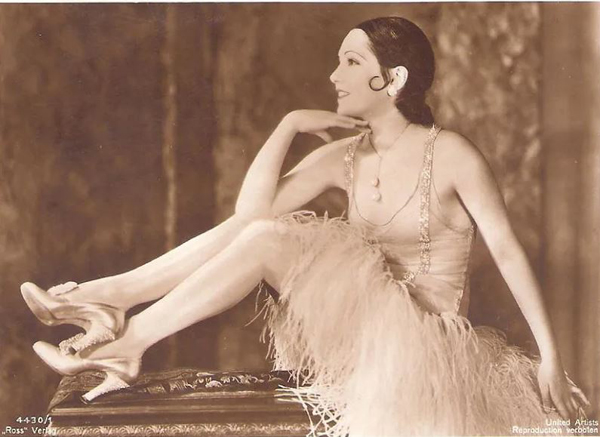
Lupe began her career in Mexican Vaudeville in 1920. She spent
years of working stages as a vaudevillian, doing whatever was
needed for any given performance. Sing, dance, act, do comedy.
That is a brutal training ground. And a training ground that
teaches you many skills and much instinct. You develop an
instinct of what audiences will respond to...what might work,
what could work, what should work...and what 100% always works.
And because a vaudeville show on any given night is actually
many small shows, music, magic, comedy, drama, you develop that
instinct about every aspect of entertaining.
Vaudevillians traveled the world and knew what was and was not
universally entertaining. A vaudevillian knew what would work in
a comedy, a drama, a romance, a horror film. They had seen it
all, they had done it all, they had seen all manner of audience
and audience reaction.
After seven years of such training, she found herself
auditioning for silent films in L.A. and in 1927 her first
silent film Sailors, Beware! hit the screen. It was
produced by Hal Roach, who's eye for talent may have single
handedly changed the course of movies. He gave work to every
eventual legend from Laurel and Hardy to Will Rogers to Lon
Chaney Jr.
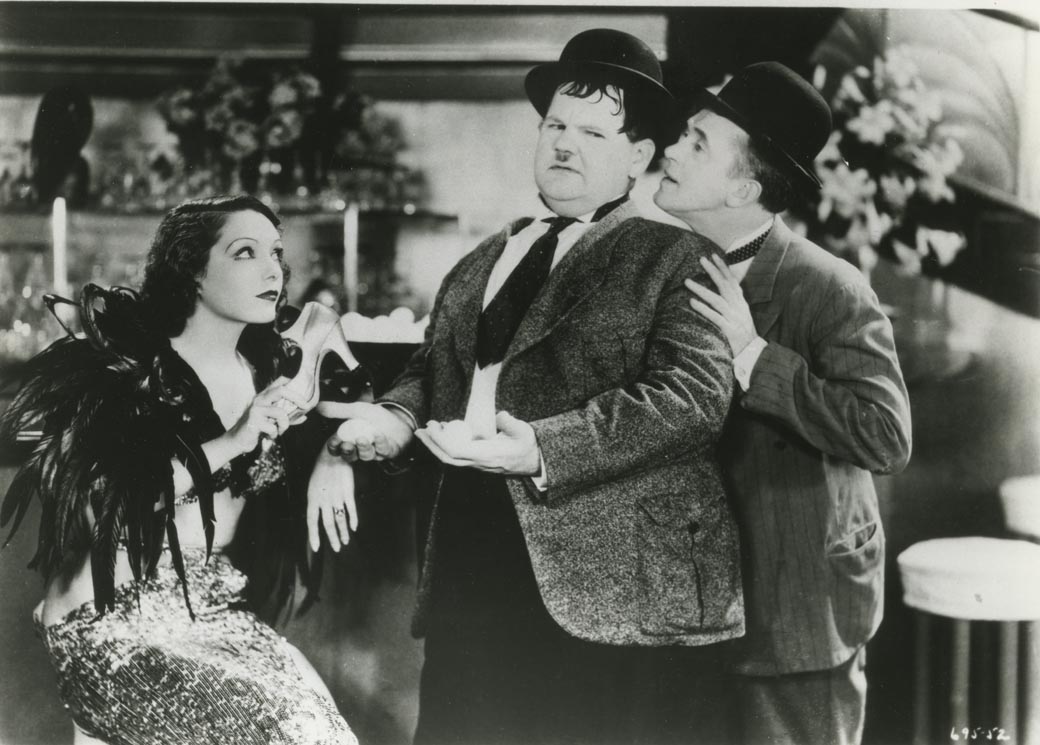
Lupe Velez, worked in films from 1927 until 1944. That is the
very time period that created the foundation of what movies
became. That was the time period where mankind figured out ways
to entertain audiences they will never see, from one side of the
globe to the other...with the same single performance. And the
period of time when comedy figured out how to compete for
audiences hearts, on even footing with dramas.
If you watch a Lupe Velez movie...you watch the prototype for
what a comedy lead character became. You are watching a
character with a real personality. "Real"
as in a character that had thoughts, and feelings, and ambitions
beyond getting through their day without slipping on a banana
peel.
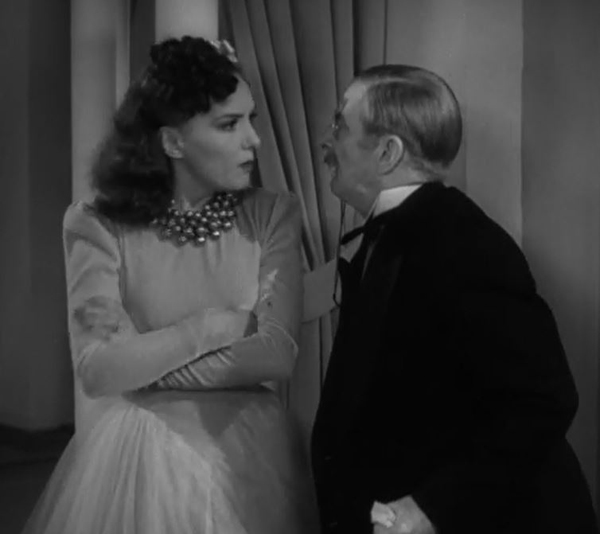
Chaplin, Laurel and Hardy, most the rest of the early attempts
at comedic leads, they did good work, but they didn't for one
second feel like they exist anywhere but in that world of that
movie, nor exist for any reason but to have the story happen.
Lupe's characters were not just characters on a screen, they
were someone you were watching. When one of Lupe's characters
would talk someone into an absurd idea...it didn't seem like a
lame premise, because her characters were genuinely charming
enough to talk someone into doing that.
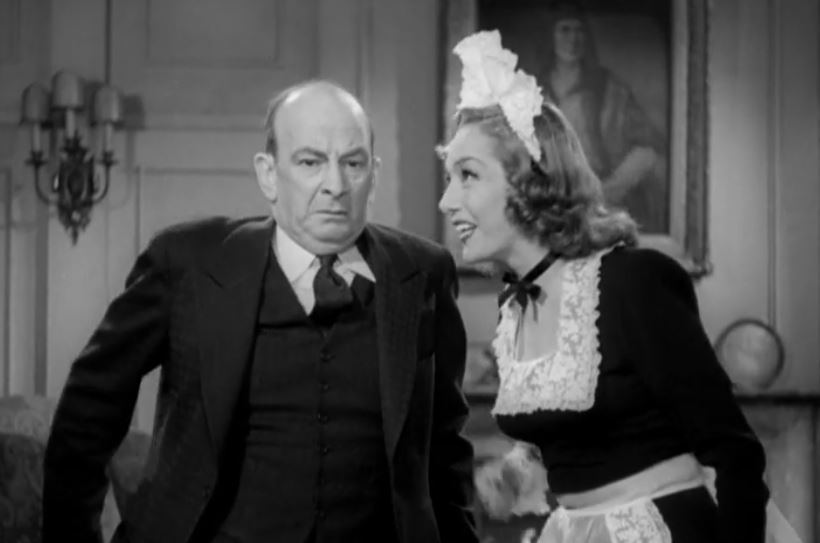
Lupe brought from vaudeville the skill and instincts, but did
not stop there...she added personality, excitement, and heart,
that movies would be able to convey in a way that stage could
not.
There was a level of sophistication to her characters well above
say...The Three Stooges. That is something that wasn't really
earnestly attempted in comedy until Lupe. She showed if you
believed in the character enough to care about the character,
the comedy was better, the jokes were funnier, you laughed
harder because the stakes were higher.
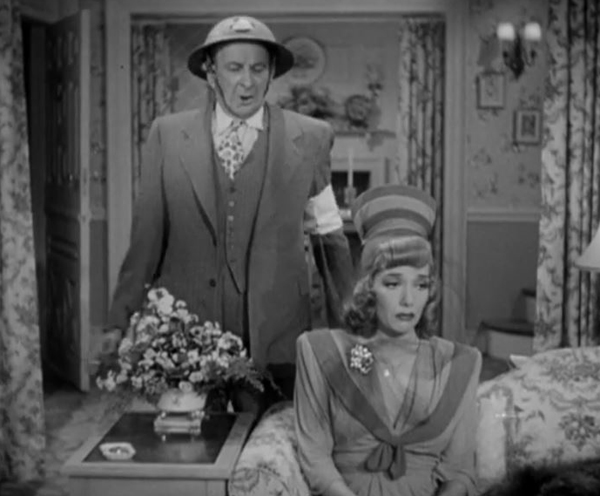
She rose above merely being romantic fodder, or being the
eventual prize for the male lead. Even when that was the script,
her performances overshadowed that notion. She could sing, and
dance, and act, and be a sex symbol, as many actresses of the
time could. But she could do something more than that...she
could dominate. She could be a force of nature. She could be
exciting...dangerous.
See, Lupe did not just share the screen with the male leads. She
interacted with them in ways that other actresses were not
doing. She was Latina, and a comedian, those where double edged
swords in early Hollywood. On the one hand you where taken less
seriously, very sad and unfair ....BUT on the other hand you
could get away with a lot more.
This was a prudish era, and most other actresses only interacted
with the male leads through dialogue and kissing, or
occasionally defending themselves. Lupe, could do more than
that, what other actresses couldn't...she could be the
aggressor, she could be the one who was physically dominating.
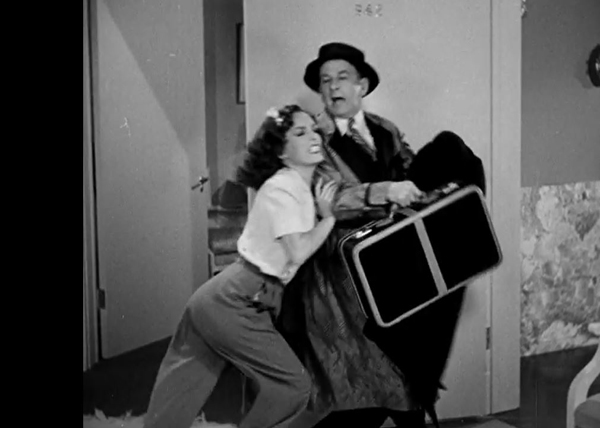
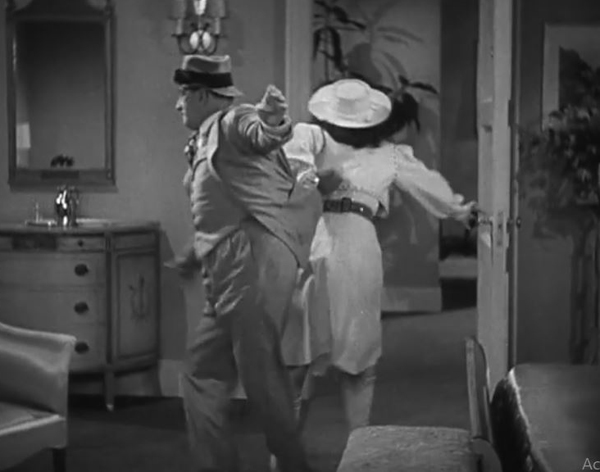
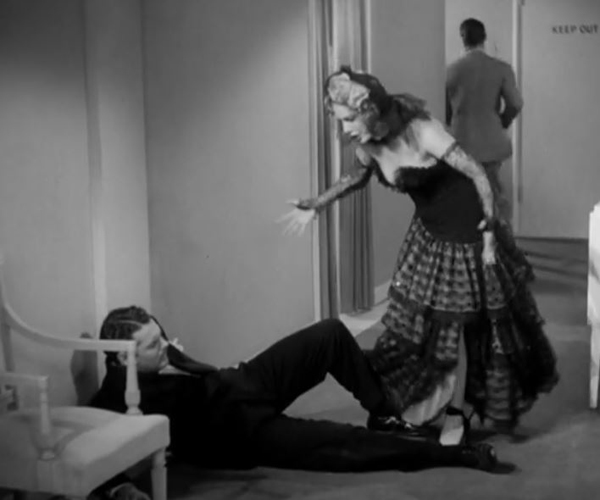
Most actress would not have been able to pull such things off,
even if they wanted to. They simply did not have the skill to
make it believable. Lupe's time in Vaudeville taught her
physical comedy, her personality made that physical comedy
believable. Her characters were something other actresses just
did not have the option, nor skills, nor the talent to
convey...an actual, without subterfuge or trickery, right up in
your face, physical threat.
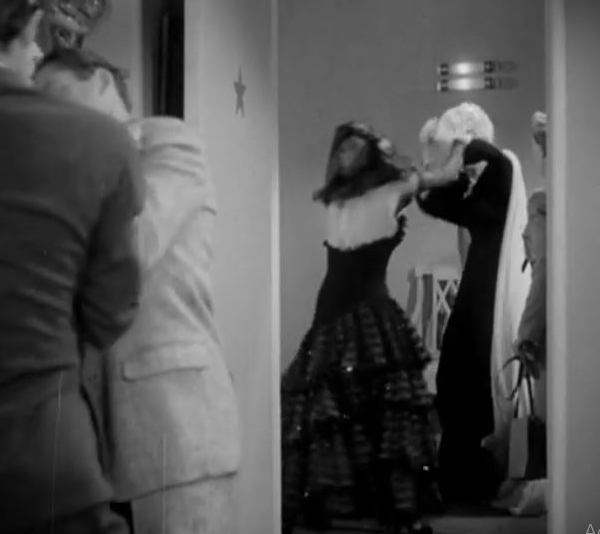
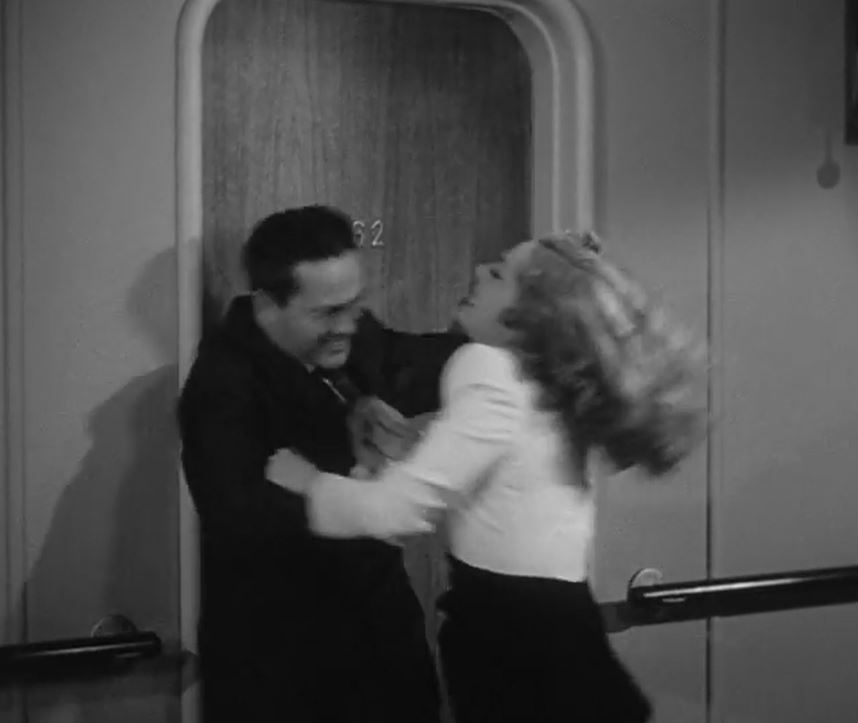
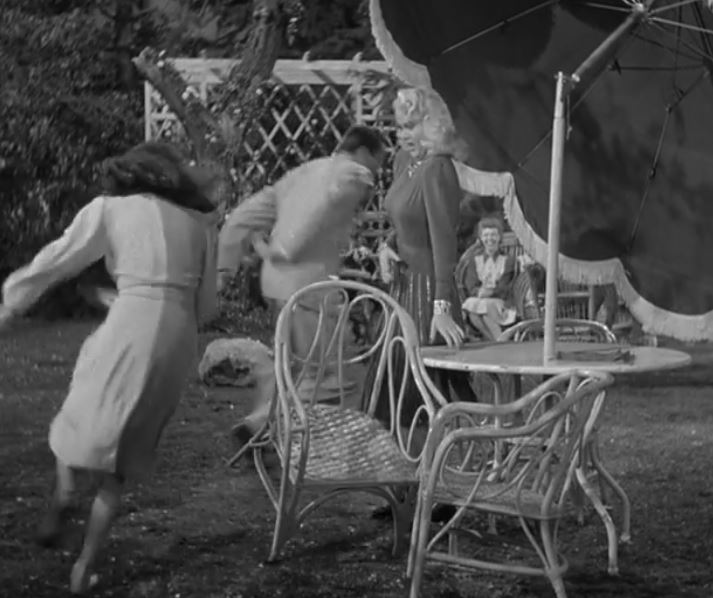
Beyond the skill of it. There is just something certain
comedians have. I mentioned it at the beginning. An underlying sense of possible danger and it
has to just...like with Belushi...be there......under the
surface. The audience has to feel like it's waiting, like it's
there at the ready. That sense of danger is something that is
very very important in drama, but it is
even more important in comedy.
I'll give you an example from "The Mexican Spitfires Baby".
It's the old (it's old now) misunderstanding because only part
of the conversation was heard, gag. Lupe hears part of a
conversation and thinks her husband is cheating on her with some
blonde. Not an easy joke to actually get a laugh out of, even
back then when it was new...BUT when Lupe says "Oh...Hello,
Daaaddeeee" it makes you laugh because its genuinely
terrifying.
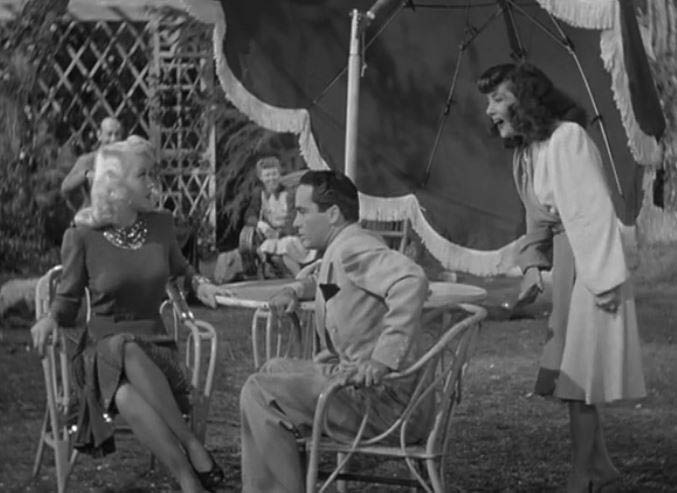
Having an air of danger...It's a helpful tension, not just for
jokes in which violence is concerned. It also gives simple lines
more punch, because a joke gets a little extra whiplash when the
person giving the lines state of mind is hard to predict.
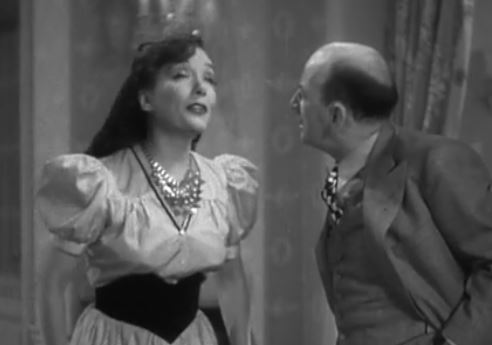
Lupe was the prototype- comedy alpha predator. Wherein the jokes
were because of her, but not at her expense. She was the one
dispensing the slapstick, dispensing the lines, the insults, she
was the one saying mocking things under her breath that the
audience could hear but the subject could not. That was rare for
early comedy and unheard of for a female comedian. When you
watch her, you are also watching a prototype for future comedy
alpha predators...you're Jim Carrey's, Bill Murray's, Eddie
Murphy's, Ryan Reynolds's, every comedic actor who's role has
them dispensing the comedy instead of absorbing it. Being large
and in charge and causing the chaos instead of being on the
receiving end. The joke is what they do to someone, not what
happens to them.
Understand, there was a time where that was uncommon,
risky. Most comedy/comedian's jokes where based on them being
Wile E Coyote, not Bugs Bunny.
Someone has to do something right, before people know how to do
it right.
Anyone who knows of Lucille Ball, knows her influence and
success is responsible for inspiring and opening the door for
generations of female comedians. But not enough people know that
it is a straight line of progression from Lupe Velez to Lucille
Ball.
The I love Lucy show at it's core takes a lot (most) of
it's elements and comedic foundation from Lupe, specifically the
marriage of Carmelita and Mathew Lindsey in the Mexican
Firecracker series of movies.
In the beginning of her career Lucille Ball was just getting
dragged through one bad crime movie after the next until someone
said-
"how about a show where the wife will be the comedic lead
and do physical comedy but her charm is the center of gravity,
she'll have emotional outbursts, get into absurd trouble even
though she meant well, and have things spiral out of control."
"okay! That worked great in those Lup..."
"and...let's have one of the spouses be from Mexico and work
in a Cabaret!"
"...uhm...Now, that sounds exactly like Lup..."
"nope, the wife will be a red head! It's completely
different"
Lucille was amazing and so was her show, and it had a softer,
less chaotic tone...but , without Lupe's success
and example, Ball might have trapped in a parade of B movies.
It wasn't the premise that was most valuable, or even the notion
of the female comedic lead, or the way in which to craft the
jokes. It was the concept that you could make the audience laugh
and care about you. There was a time that had not been tried. A
time when it had not been considered. A time when comedy
had only characters that you where watching to see jokes happen,
not watching to see what would happen to them.
...a time before Lupe Velez.
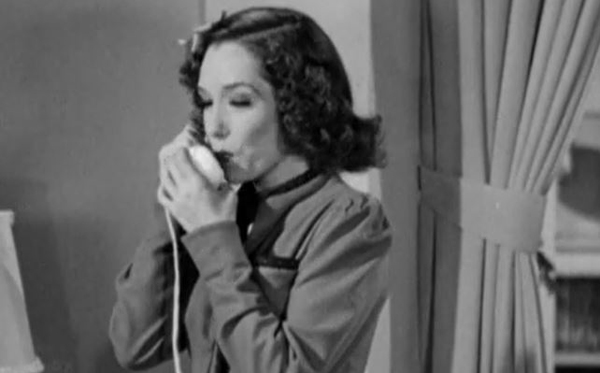
The man she's pictured with in most of what I've shown you is
Leon Errol. They were co-stars in 9 films. He was also a veteran
of Vaudeville, also had a rich history and a lot of work under
his belt. In all things, but especially comedy, chemistry is
important. You never can quite tell with chemistry...on paper
two vaudevillians born almost 30 years apart on different side
of the globe would not seem like much of a match.
But...they were.
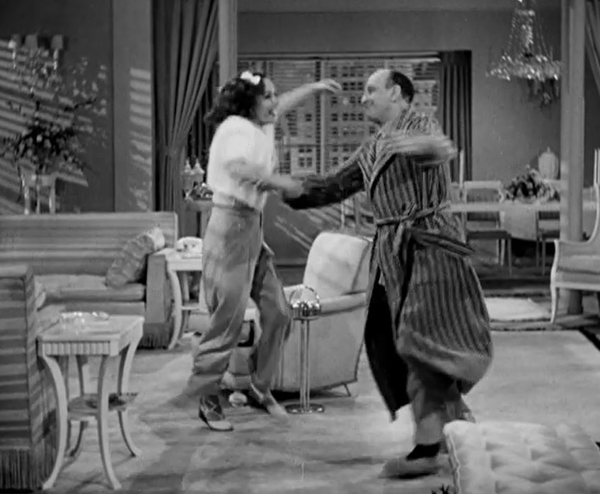
They were great. Two absolute pros who knew all the ins and outs
and techniques from decades of performing individually, and they
complimented each others performances amazingly. Best known
together for the "Mexican Firecracker" series of movies.
The premise of those movies was a guy with a New York ad agency
falls in love with and marries a woman from Mexico (Errol was an
uncle of the husband). And I would GUESS, that initially the
movie was supposed to be a wacky romantic comedy revolving
around the differences between him and her . And I was not there
during production but I am guessing that early on someone in
charge said...
"you know what? F8ck it, the husband can be a third
string character...just keep filming scenes with Lupe and
Errol".
Because that's what happened. The movie series that seemed to
have initially been billed as a romantic comedy, was actually a
buddy movie. It could have been a trope that was already
tired by 1940, but instead it was something very special.
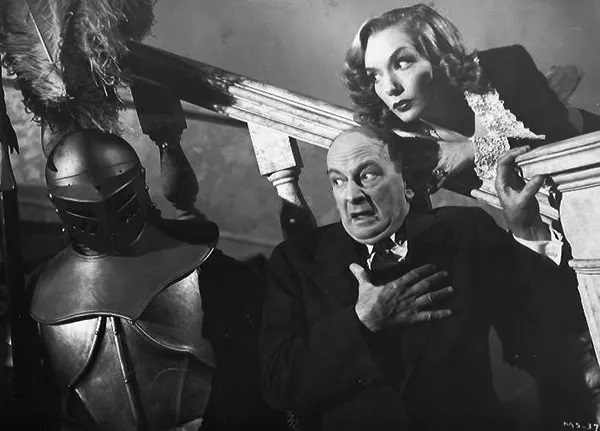
And...let's look at another aspect of it for just a second. This
entire series of movies, which started in 1939, revolved around
a female minority constantly getting the upper hand on a cast of
white males. See how much you can get away with when you aren't
taken seriously?
The first two are the best, "the Girl From Mexico" and then
"Mexican Firecracker". The second one, to my mind, is the best
of them all. If you are willing to watch only one...watch
Mexican Firecracker
There are a few "pie in the face" type gags...because it was the
late 30s early 40s and it was the law. You had to have a pie in
the face in a comedy or it violated the movie code, apparently.
The series went on long after any of the writers knew what to do
with it beyond redoing old themes, ( that's the way of all movie
series eventually...as any of us can point to a series that
started in our lifetime that went on too long) but Lupe and
Errol made even the eventually tired premises fun to watch.
Because it wasn't a simple "funny man and straight man" or "one
is smart and one is stupid" or "good cop/bad cop". It was more
like...two enablers.
"we'll make a wig out of dog hair"
"...good idea!"
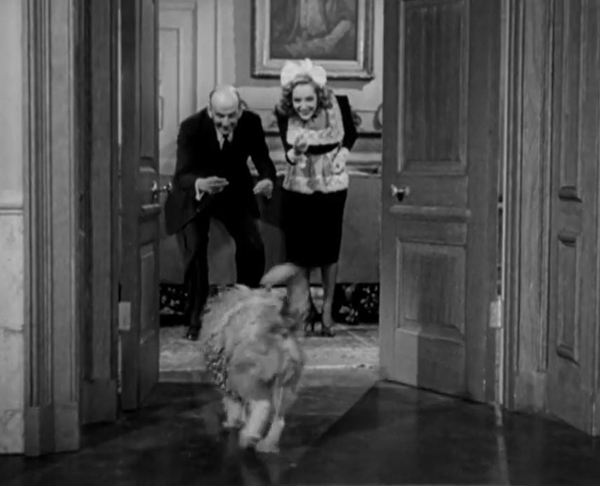
And if you watch them, you'll see gags and physical comedy that
the world would see again, sometimes modified, sometimes
improved and sometimes not done as well, over and over in
everything from Movies, to TV to Bugs Bunny cartoons.
And if it crosses your mind "ah, I've seen that a hundred
times", that is incorrect. You have seen it RE-DONE a
hundred times.
Something as simple as a delayed reaction, or turning the
corner, walking into trouble and cosmetically trying to just
turn around and walk back around the corner away from it.

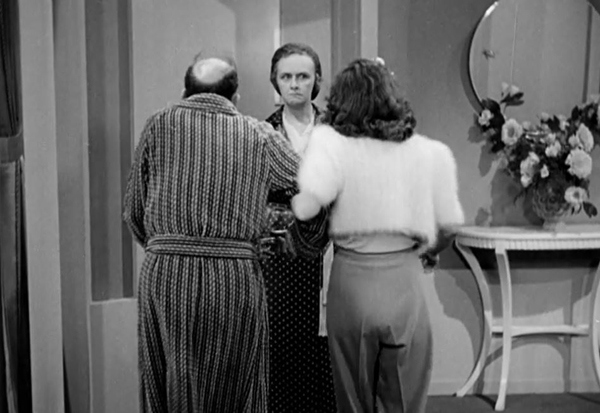
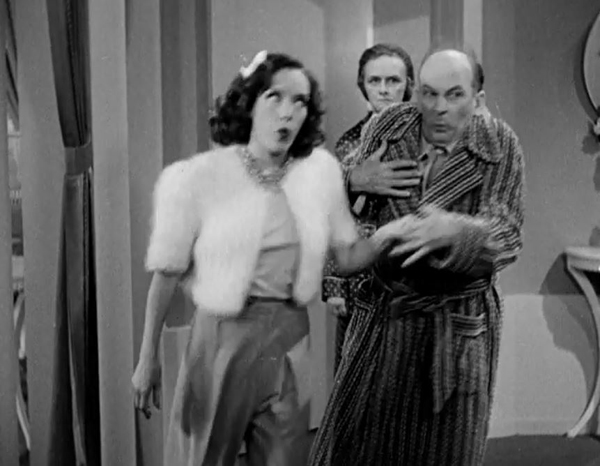

Gags that worked in vaudeville had to be thrown out or improved,
or in some cases worked even better on the big screen...with a
little modification. The early comedy stars had a whole new box
of tools to figure out how to use and some of them made good
work despite having no road map or predecessors to look over.
...And showed the rest of the world what was possible. Gave
comedy the roadmap it needed and credibility on the big screen.
Lupe Velez did that.
and don't you forget it.
